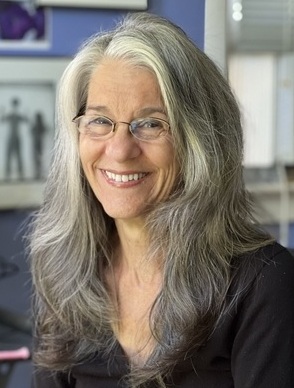FABBS invited Frances “Francie” Gabbay, Research Associate Professor of Psychiatry at the Uniformed Services University of the Health Sciences, Staff Scientist in the Center for the Study of Traumatic Stress, Director of the Clinical Psychophysiology and Psychopharmacology Laboratory, and former FABBS Board Member, to share her experience and insights gained over her terms of serving three years on the FABBS Council of Representatives and six years on the FABBS Board.
What led you to serve on the FABBS Board?
I first affiliated with FABBS as the Council Representative for the Society for Psychophysiological Research. After serving in that role for three years – and enjoying it immensely – I was invited to join the FABBS Board. I jumped at the chance to continue and expand my service to FABBS, trusting that having been a Council Representative, I would bring a unique perspective and a small but significant knowledge base to Board objectives. My decision to accept the invitation also reflected an expectation (well placed, as it turned out) that the experience would enhance my understanding of science, policy, and most importantly, their intersection.

What has been the most rewarding aspect of your service to the Board?
First and foremost, I would say the connections I made with other Board scientists, with Juliane Baron, FABBS Executive Director, and with other FABBS staff. Few things are more rewarding than pursuing shared goals with thoughtful and knowledgeable colleagues, many with considerably more experience than I in the science-based policy arena.
That said, a singularly rewarding aspect of the experience was the evolution of my view of the role scientists can – and should – play in addressing critical societal challenges. While I always believed that science does a good job of asking important questions in the lab (and I use the term “lab” broadly), I was uncertain in the early phases of my career about the extent to which scientists should be involved in policy outside of the lab. There was both a sense that public engagement was unbecoming of a scientist and a decided lack of training on how to communicate with nonscientists.
Yet, at the same time, I was uneasy not venturing out of the ivory tower. What good is our work if it doesn’t inform policy?Serving on the FABBS Board showed me that it was possible and even required for scientists to promote evidence-based policy. Indeed, the timing of my stint on the Board was fortuitous in that regard. I joined the Board shortly after the 2016 election, at a time when the political and cultural landscape was changing dramatically and not in a good way for science. The imperative was suddenly clear, and doubts about not “staying in my lane” evaporated.
It was rewarding to navigate the particular issues with other Board members, who were similarly worried about the future of science – particularly the behavioral and social sciences. Together we arrived at and implemented decisions about how to best use available talent and resources to accomplish the overlapping objectives of advocating, communicating, and educating policymakers and the public about science.
One of the most fulfilling of the diverse tasks I undertook as a Board member was heading the effort to write a statement regarding the last Administration’s family separation policy in place at the Mexican border in 2018. In the published statement, drawing on the work of its members, FABBS implored the Administration to identify policies that take into account the clear and abundant scientific evidence demonstrating harmful and long-term effects of separation on the mental and physical health of children.
What good is our work if it doesn’t inform policy?Serving on the FABBS Board showed me that it was possible and even required for scientists to promote evidence-based policy.– Francie” Gabbay, PHD
Gratifying in a different way was the opportunity to serve as Guest Editor on an issue of Policy Insights of the Behavioral and Brain Sciences (PIBBS), for which I was able to invite my colleagues in SPR to write articles highlighting the relevance of their empirical work to policy. [Check out Policy Insights from Biobehavioral Sciences]
Having served three years on the FABBS Council and six years on the Board, I emerged from the experience convinced of the importance, acceptability, and necessity of participating at the intersection of science and policy – and with an enhanced set of tools to do that.
What do you wish that every behavioral scientist understood about the work that FABBS does?
I wish that behavioral scientists understood that while an organization gains many perks by affiliating with FABBS – the opportunity to nominate an early career investigator for a FABBS award or submit articles to PIBBS or access to the growing number of educational resources FABBS provides, for example – the most important thing an organization gains by affiliating with FABBS is becoming an integral part of the effort to promote science writ large and the behavioral sciences in particular, becoming a part of the infrastructure that safeguards science. Ensuring adequate funding for science is a crucial component of that safeguarding, to be sure, but ensuring a place and a voice for science is paramount.
I like to say that no one becomes a member of National Public Radio (NPR) to get the tote bag. People join NPR in order to participate in and support an effort they see as a crucial means to a better world. Organizations that affiliate with FABBS will no doubt find their “tote bags” useful. But in addition, they will know that they are supporting a broad and deep effort to ensure that science is invited to the table and heard in the discussion.
Know anyone interested in joining the FABBS board? We are currently accepting nominations for President, Vice President, Member at Large, and Treasurer. Read the full solicitation here.